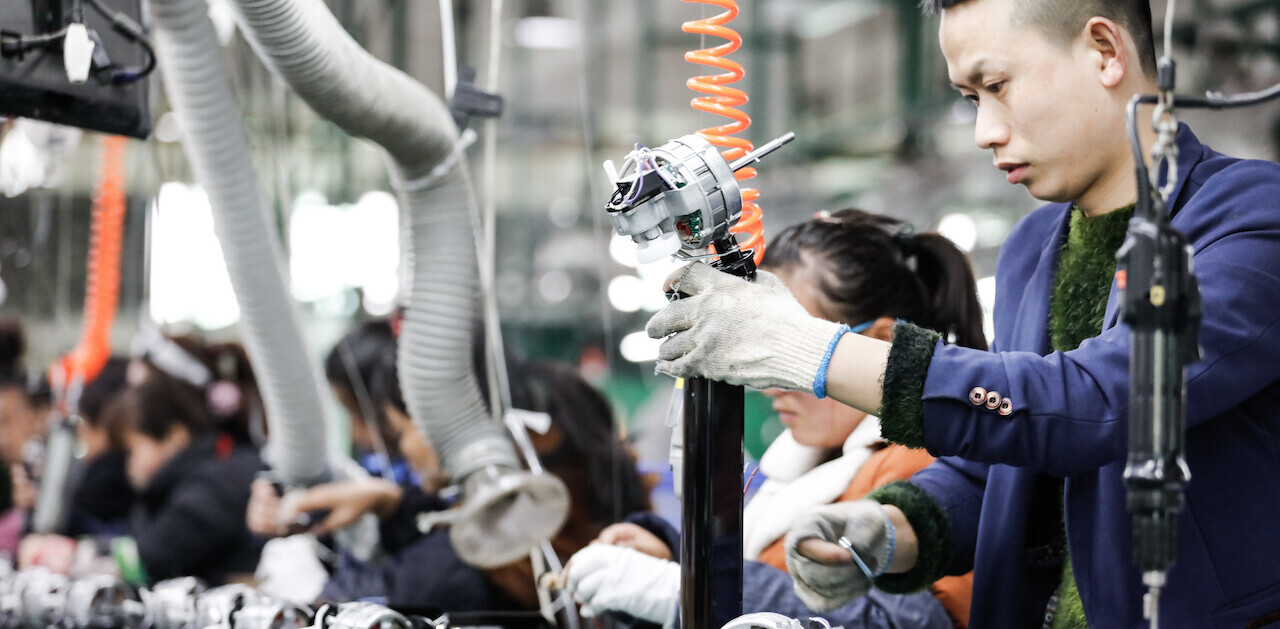
From Uber’s battle surrounding 1099s to Airbnb’s reports of security concerns, sharing economy companies are both finding their niche and dealing with growing pains.
While these companies are here to stay, new rules surrounding how they operate are already changing the way they operate.
To learn where these companies and rules are headed, I polled 15 entrepreneurs from YEC on the following.
How do you think rules or regulations surrounding the sharing economy will play out in the next five years? And how will that affect companies like Uber and Airbnb?
Their best answers are below:
1. More Employee Protections
 These businesses operate in what feels like a sort of gray area with regards to employees (more relevant to Uber than ABnB). I think we all knew that there were going to be adjustment periods and time to try new things, but labor boards don’t seem pleased about what’s happening, and governments are starting to talk about it. I think new laws are probably going to be in place soon. – Matt Doyle, Excel Builders
These businesses operate in what feels like a sort of gray area with regards to employees (more relevant to Uber than ABnB). I think we all knew that there were going to be adjustment periods and time to try new things, but labor boards don’t seem pleased about what’s happening, and governments are starting to talk about it. I think new laws are probably going to be in place soon. – Matt Doyle, Excel Builders
2. Increase in Health and Safety Regulations
 No one likes a nanny state, but health and safety to both consumers and employees is critical for the sharing economy to be sustainable. All it takes is a customer not knowing what to do in a fire or getting a disease from poor hygiene and regulators will come in. – James McDonough, SEE Forge
No one likes a nanny state, but health and safety to both consumers and employees is critical for the sharing economy to be sustainable. All it takes is a customer not knowing what to do in a fire or getting a disease from poor hygiene and regulators will come in. – James McDonough, SEE Forge
3. It Will Be a Tightrope Walk.
 Rules and regulations are in a state of flux around the sharing economy like Uber and Airbnb. It’s become a political hot button, one that places these innovative “apps” against the established businesses who are being disrupted. It will be interesting to see how and if established businesses rise to the occasion to meet and enter the sharing economy in their own business models. – Nicole Munoz, Start Ranking Now
Rules and regulations are in a state of flux around the sharing economy like Uber and Airbnb. It’s become a political hot button, one that places these innovative “apps” against the established businesses who are being disrupted. It will be interesting to see how and if established businesses rise to the occasion to meet and enter the sharing economy in their own business models. – Nicole Munoz, Start Ranking Now
4. More People Will Use These Companies in the Long Run.
 While the rules and regulations will take time to establish, in the long run, they will create a standardized process for these companies in the sharing economy and, as such, end up encouraging more people to actually use these services. Many consumers may feel more comfortable after there is some legal framework guiding how these companies operate. – Angela Ruth, Due
While the rules and regulations will take time to establish, in the long run, they will create a standardized process for these companies in the sharing economy and, as such, end up encouraging more people to actually use these services. Many consumers may feel more comfortable after there is some legal framework guiding how these companies operate. – Angela Ruth, Due
5. Mutual Respect Between Regulators and Tech Companies
 I strongly dislike corrupt and old industries that take the customer for granted, and regulation protection for such industries can be annoying. However, regulation also leads to safety. Las Vegas fought with Uber to ensure that drivers passed the taxi commission’s background checks to keep drug addicts and violent felons out of Ubers. That’s good regulation in my opinion, and now we can Uber in Vegas. – Tim Maliyil, AlertBoot
I strongly dislike corrupt and old industries that take the customer for granted, and regulation protection for such industries can be annoying. However, regulation also leads to safety. Las Vegas fought with Uber to ensure that drivers passed the taxi commission’s background checks to keep drug addicts and violent felons out of Ubers. That’s good regulation in my opinion, and now we can Uber in Vegas. – Tim Maliyil, AlertBoot
6. Regulation May Kill the Business Model and Shared Economy
 The existing attempts at regulation have hurt these companies in some markets already so I don’t see anything positive coming from more regulation that typically only dries up a business and detracts from what they offer. Customers get nervous about why there is so much regulation and just revert back to traditional businesses. It seems like this is what could happen. – Drew Hendricks, Buttercup
The existing attempts at regulation have hurt these companies in some markets already so I don’t see anything positive coming from more regulation that typically only dries up a business and detracts from what they offer. Customers get nervous about why there is so much regulation and just revert back to traditional businesses. It seems like this is what could happen. – Drew Hendricks, Buttercup
7. More Restrictions on Independent Contractors
 The current regulatory environment, especially with respect to the ACA, has pushed businesses to seek (1099) Independent Contractors rather than full-time employees. More and more states, like Massachusetts, will prohibit the use of Independent Contractors who conduct work within the core business. We saw this happen with Uber in some states, and there’s more to come. – David Mainiero, InGenius Prep
The current regulatory environment, especially with respect to the ACA, has pushed businesses to seek (1099) Independent Contractors rather than full-time employees. More and more states, like Massachusetts, will prohibit the use of Independent Contractors who conduct work within the core business. We saw this happen with Uber in some states, and there’s more to come. – David Mainiero, InGenius Prep
8. Large Corporations Following Suit
 In the next decade, large corporations will begin to see the benefit of getting involved in the sharing economy, and they will begin to make their own versions of the “smaller” startup companies like we see today. Companies such as Enterprise will strive to create their own subset version of Uber’s business model, which will attract those that have been working with larger brands for decades. – Miles Jennings, Recruiter.com
In the next decade, large corporations will begin to see the benefit of getting involved in the sharing economy, and they will begin to make their own versions of the “smaller” startup companies like we see today. Companies such as Enterprise will strive to create their own subset version of Uber’s business model, which will attract those that have been working with larger brands for decades. – Miles Jennings, Recruiter.com
9. Regulations Could Kill Creativity
 Rules and regulations have never been effective during the creative process. And let’s be honest, that is what’s happening here. Uber, Airbnb and the like are all going through a phase of growth and creativity, and we likely haven’t seen the most refined version of these services yet, nor will we see them in their purest form if there are rules and regulations in place to stymie creativity. – Blair Thomas, First American Merchant
Rules and regulations have never been effective during the creative process. And let’s be honest, that is what’s happening here. Uber, Airbnb and the like are all going through a phase of growth and creativity, and we likely haven’t seen the most refined version of these services yet, nor will we see them in their purest form if there are rules and regulations in place to stymie creativity. – Blair Thomas, First American Merchant
10. Rules and Regulation Will Become Simpler and Unified
 As sharing economy companies grow and billions of people start using them, government and political class will have to come onboard and make these rules and regulation simpler. They will realize that voters and tax payers love the sharing economy, and they will have to simplify the rules to make the sharing economy more accessible. Technology has always simplified rules, and this will follow suit. – Piyush Jain, SIMpalm
As sharing economy companies grow and billions of people start using them, government and political class will have to come onboard and make these rules and regulation simpler. They will realize that voters and tax payers love the sharing economy, and they will have to simplify the rules to make the sharing economy more accessible. Technology has always simplified rules, and this will follow suit. – Piyush Jain, SIMpalm
11. A New Regulatory Equilibrium
 Many entrepreneurs are anti-regulation because regulation can harm innovative businesses. Unfortunately, innovative businesses can harm employees, customers and communities. Regulators should protect those groups. They’re slow to adapt to new technologies, but as time goes by, an equilibrium will evolve that takes new technologies into account while protecting consumers and workers. – Vik Patel, Future Hosting
Many entrepreneurs are anti-regulation because regulation can harm innovative businesses. Unfortunately, innovative businesses can harm employees, customers and communities. Regulators should protect those groups. They’re slow to adapt to new technologies, but as time goes by, an equilibrium will evolve that takes new technologies into account while protecting consumers and workers. – Vik Patel, Future Hosting
12. More Taxes on Businesses
 Uber, Airbnb and other fast-growing sharing economy companies are currently operating without the regulatory scrutiny of established players. One of the major ways is in the way they are taxed. Uber, for instance, will most likely need to switch drivers from 1099 contractors to W2 employees in the next five years, which will include social security tax, unemployment tax, and other payroll related taxes. – Fan Bi, Blank Label
Uber, Airbnb and other fast-growing sharing economy companies are currently operating without the regulatory scrutiny of established players. One of the major ways is in the way they are taxed. Uber, for instance, will most likely need to switch drivers from 1099 contractors to W2 employees in the next five years, which will include social security tax, unemployment tax, and other payroll related taxes. – Fan Bi, Blank Label
13. Realistic Laws
 I think legislators are going to start adapting laws to account for the reality of these kinds of services, which people clearly want. I think this will benefit Uber, Airbnb, and others; they’ll have less potential regulatory risk if the laws are clear. – Matthew Weinberg, Vector Media Group
I think legislators are going to start adapting laws to account for the reality of these kinds of services, which people clearly want. I think this will benefit Uber, Airbnb, and others; they’ll have less potential regulatory risk if the laws are clear. – Matthew Weinberg, Vector Media Group
14. Disruptive Technologies Will Be More Regulated
 These disruptive economies have thrived in a highly unregulated environment, which will change in five years as the full impact of these technologies is felt by different regulatory agencies. In five years time, these will be seen as part of the establishment, and will be regulated as such. As workforces become more dynamic and user regulated, the government will have to step in. – Marcela De Vivo, Gryffin
These disruptive economies have thrived in a highly unregulated environment, which will change in five years as the full impact of these technologies is felt by different regulatory agencies. In five years time, these will be seen as part of the establishment, and will be regulated as such. As workforces become more dynamic and user regulated, the government will have to step in. – Marcela De Vivo, Gryffin
15. Sharing Economy Companies Will Find Their Niche
 Airbnb and Uber will be transformative over the next 5 years. Airbnb will mold into a full blow hospitality company and legitimize itself on an international level, working with different countries’ regulators to become a legal competitor globally. Uber will adjust itself depending on the country (i.e. in Spain, Uber is a food delivery service) and serve different roles depending on rulings. – Alexis Levine, Savvy Media
Airbnb and Uber will be transformative over the next 5 years. Airbnb will mold into a full blow hospitality company and legitimize itself on an international level, working with different countries’ regulators to become a legal competitor globally. Uber will adjust itself depending on the country (i.e. in Spain, Uber is a food delivery service) and serve different roles depending on rulings. – Alexis Levine, Savvy Media
Get the TNW newsletter
Get the most important tech news in your inbox each week.





